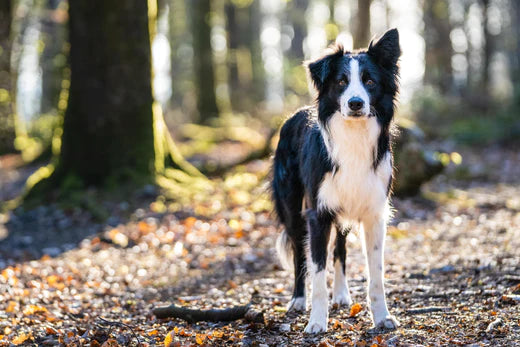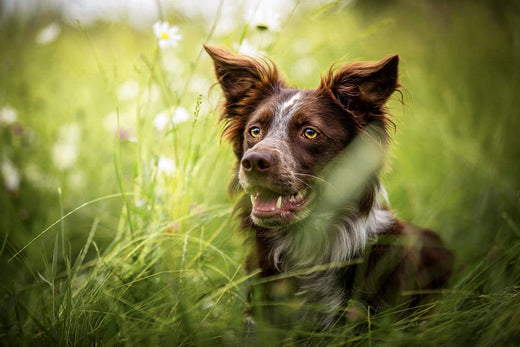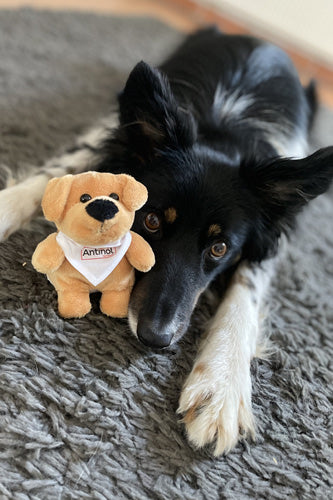As the hot summer months approach, it’s important to recognise changing needs and risks that present to our pets during the warmer weather. Common health problems in dogs that I see during the summer are increased musculoskeletal injuries, heat stroke, and allergy flare-ups.
Here are my 5 top summer safety tips for your pooch:
WARM YOUR DOG UP BEFORE EXERCISE
During hot weather, we tend to go outside more with our dogs. This means increased levels of activity (playing fetch, running, jumping, walking) and our dogs are often not conditioned for this level of activity. To avoid injuries, be sure to do a little warm-up before intense activity.
An easy way to warm up your dog is to go for a leisurely 10-minute walk. You can also do a more dynamic warm-up with a series of sit-to-stand exercises (like squats for people) or down-to-stand (like push-ups for people). This type of movement brings essential blood flow to the muscles and prepares the body for higher levels of exercise.
Remember to start slow and gradually build up activity. For example, if your dog has not gone for a really long walk since last summer, start with a 10 min walk and build up by 5-10 min each week. If the weather is really scorching, avoid strenuous exercise and give your dog breaks from activity.
KEEP YOUR DOG COOL IN THE HEAT
When outside temperatures rise, it’s important to remember our pets can overheat quickly.
Unlike people, dogs are always wearing an extra layer with their hairy coats. In addition, dogs don’t sweat and only dissipate heat by panting—making them highly vulnerable to heat stroke.
NEVER EVER leave your dog in a car in the summer months—even with the windows cracked open, temperatures can quickly rise above 40°C inside.
If you are taking your dog for a walk, avoid the hottest times of day—do your exercise in the morning or evening hours when the temperatures are cooler. Always provide plenty of water to drink during and after exercise to help reduce overheating.
Make sure your dog has access to a water bowl in the summer heat, and consider spraying them off with fresh water.
After exercise, providing a shady, cool spot to rest helps them maintain a safe body temperature.
STAY CLEAN AND AVOID SUMMER ALLERGIES
As our dogs spend more time outside in the summer, they are exposed to more allergens such as tree, flower and grass pollens. In addition, the moisture in the air can predispose dogs to skin yeast and bacterial infections.
One easy way to reduce allergen exposure is to bathe your dog regularly in clean water. This helps remove the surface allergens that build up on the skin. I recommend bathing every other week, although some highly allergic dogs may require more frequent bathing. You can also add a HEPA filter in your home to reduce allergens indoors and vacuum daily.
Adder bites and insect stings are also more likely during the days of summer, as is the risk of picking up parasites such as ticks and fleas. Keep your dog's parasite treatments up to date, and contact your vet if you think your dog has been stung or bitten.
WATCH WHAT YOUR DOG EATS
As we enjoy barbecues and outdoor gatherings, our fur babies are often fed foods that can harm them.
Top of the list is corn on the cob and cooked bones. Dogs tend to swallow these in large pieces and almost always cause intestinal obstructions that can be life-threatening. Do not ever feed your dog corn on the cob or cooked bones!
Other foods to avoid are high-fat foods (such as bacon, cheese, hot dogs, and hamburgers) that can cause diarrhoea or pancreatitis (which can also be life-threatening).
Summery foods that are toxic to dogs include raisins and grapes (cause kidney failure), xylitol (artificial sweetener found in chewing gum, ice cream, peanut butter and other foods that can cause dangerously low blood sugar in dogs), chocolate, macadamia nuts, onions, and garlic.
STAY ON THE LEAD
While many dogs are great off-leas, many are not! People love to let their dogs run off-lead in the summertime; however, this poses many risks.
Dogs off-lead can run away to chase a squirrel or other wildlife and can become lost, hit by a car or endure other injuries. The majority of bite wounds occur when pets are off-lead. It’s hard to predict another dog’s behaviour, and it’s always safest to have control of your dog.
Dogs are also more likely to over-exert themselves when playing with their friends, off-lead, in the park, leading to them over-exerting themselves and increasing their risk of heatstroke.
So, with the temperatures hotting up, get outside, have fun and stay safe with your dog.
Dr Leilani Alvarz is the director of Integrative and Rehabilitative Medicine at the Animal Medical Center in New York. Find out more about her work here.









